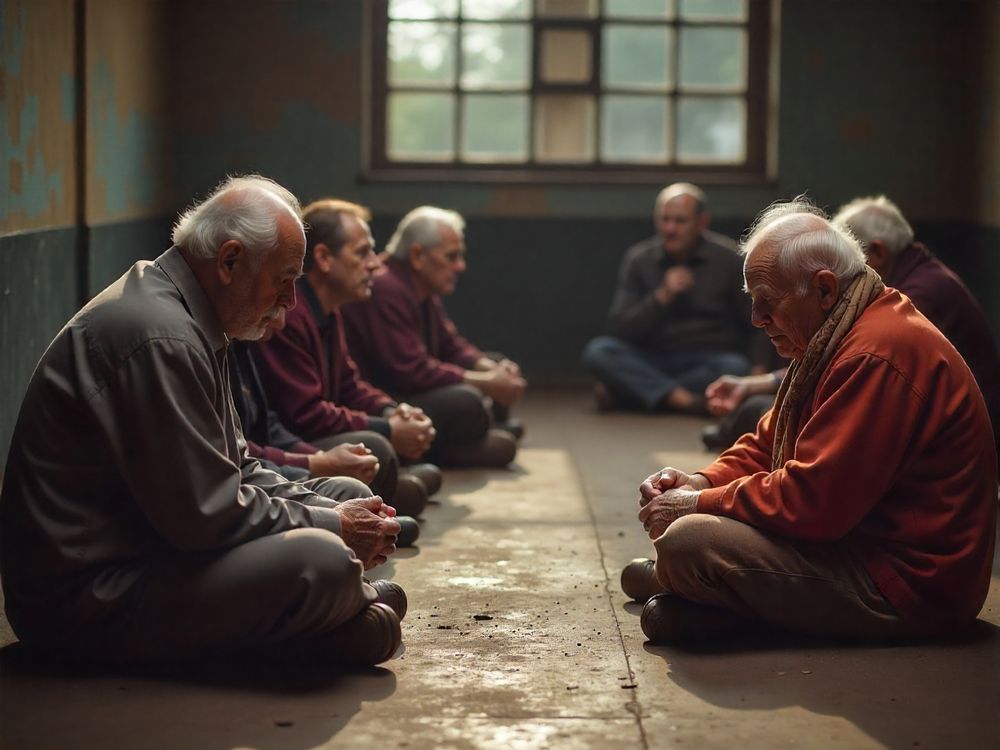Left Behind: Why Dementia Care Systems Fail the Poor and Vulnerable
Marco Aurélio Gomes Veado
3 min read
•
October 13, 2025
Behind every case of dementia lies not only a neurological challenge but also a social divide. Around the world, the ability to access proper diagnosis, treatment, and long-term support still depends largely on income. Families with financial stability can pay for memory specialists, occupational therapy, or private caregivers. In contrast, millions of low-income households face dementia armed only with love, exhaustion, and limited information. The result is a silent humanitarian crisis.
According to the World Health Organization, nearly 55 million people live with dementia today, and the majority reside in low- and middle-income countries, where formal support systems are scarce and stigma remains strong.

When caregiving becomes survival
This blog has previously published another article regarding Dementia Care, one of the most concerning issues (“How Inequality May Speed Up Brain Aging and Lead to Cognitive Issues”).
In most poor or underserved communities, care happens at home. Daughters, wives, and aging spouses step into full-time roles without training or financial help. Many abandon paid work, losing the income that sustained the household.
The economic impact is devastating: loss of productivity, increased poverty, and emotional burnout that leads to depression and isolation. In addition, this burden is gendered.
Studies show that two out of three unpaid caregivers for dementia patients are women. This invisible labor sustains families but rarely receives recognition or state assistance. As dementia progresses, so does the strain, financially, physically, and emotionally.
Examples of the financial burden of Dementia Care:
- A study published in JAMA Network Open found that the estimated total economic burden of Alzheimer's disease and related dementias (ADRD) for African American and Latino adults was $113 billion in 2020, projected to reach $1.7 trillion by 2060.
- According to the Alzheimer's Association, the median monthly out-of-pocket long-term care cost for a person with dementia was $1,465 for those living in a nursing home setting.
The limits of public systems
Even in countries with universal healthcare, dementia care often sits at the edge of policy priorities. Public clinics are overbooked, home-care programs are underfunded, and medications are costly. In rural or peripheral urban zones, diagnosis can take years. Without early detection and professional guidance, families navigate a maze of confusion, guilt, and misinformation.
Training programs for caregivers are rare, and respite services, temporary relief for those providing 24-hour care, are almost nonexistent.
When support does exist, it is often designed for those who can pay or travel long distances. The consequence is predictable: inequality deepens memory loss with despair.
A call for inclusive innovation
Technology and community-based approaches can transform this landscape if deployed equitably. Affordable AI-powered tools such as voice reminders, safety sensors, and cognitive apps can ease caregiver stress.
But accessibility is the key: these solutions must be low-cost, multilingual, and usable offline to serve low-income regions.
Partnerships between governments, universities, and NGOs can make such networks sustainable. Investing in caregiver training and mental health counseling creates a ripple effect, protecting both the patient and the caregiver.
For example, a study published in The Journal of the American Geriatrics Society found that families of African-American women with Alzheimer's disease bear the lion's share of the costs of dementia care, with 60% of the costs borne by these families.
What This Means for Caregivers
• Free or low-cost community resources can help (support groups, public memory clinics).
• Prioritize caregiver mental health; burnout is real and needs attention.
• Local NGOs often offer training or respite programs — explore them early.
• Advocacy matters: share your story to push for equitable dementia policies.
Conclusion
Dementia care is not merely a medical service; it is a measure of social justice. No one should lose dignity, connection, or safety because of financial barriers. When societies protect the most vulnerable, they strengthen everyone’s future.
Caring for a loved one with dementia is challenging enough; financial barriers shouldn’t make it harder. By raising awareness and advocating for accessible, affordable care, we can help ensure that no family is left behind in the fight against dementia. No family should have to choose between paying the bills and caring for a loved one with dementia.
Together, we can shine a light on these hidden struggles and push for a future where every family has access to the support, care, and dignity they deserve.
Disclaimer: The information provided in this article is for educational and informational purposes only. It is not intended as medical, legal, or financial advice. Readers should consult qualified healthcare professionals or financial advisors for guidance specific to their circumstances.
The MCI and Beyond website does not endorse any specific products, services, or treatments mentioned and is not responsible for any decisions made based on the content of this article.
Share this article, follow us, and subscribe to our newsletter.
Keywords (SEO): dementia care inequality, low-income families, caregiving crisis, affordable dementia support, health equity, dementia awareness
Hashtags: #DementiaCare #HealthEquity #MCIandBeyond #Caregivers #BrainHealth #MemoryMatters #AgingWithDignity #AIforGood #DementiaAwareness
Sign up for our newsletter!
Get the latest information and inspirational stories for caregivers, delivered directly to your inbox.

